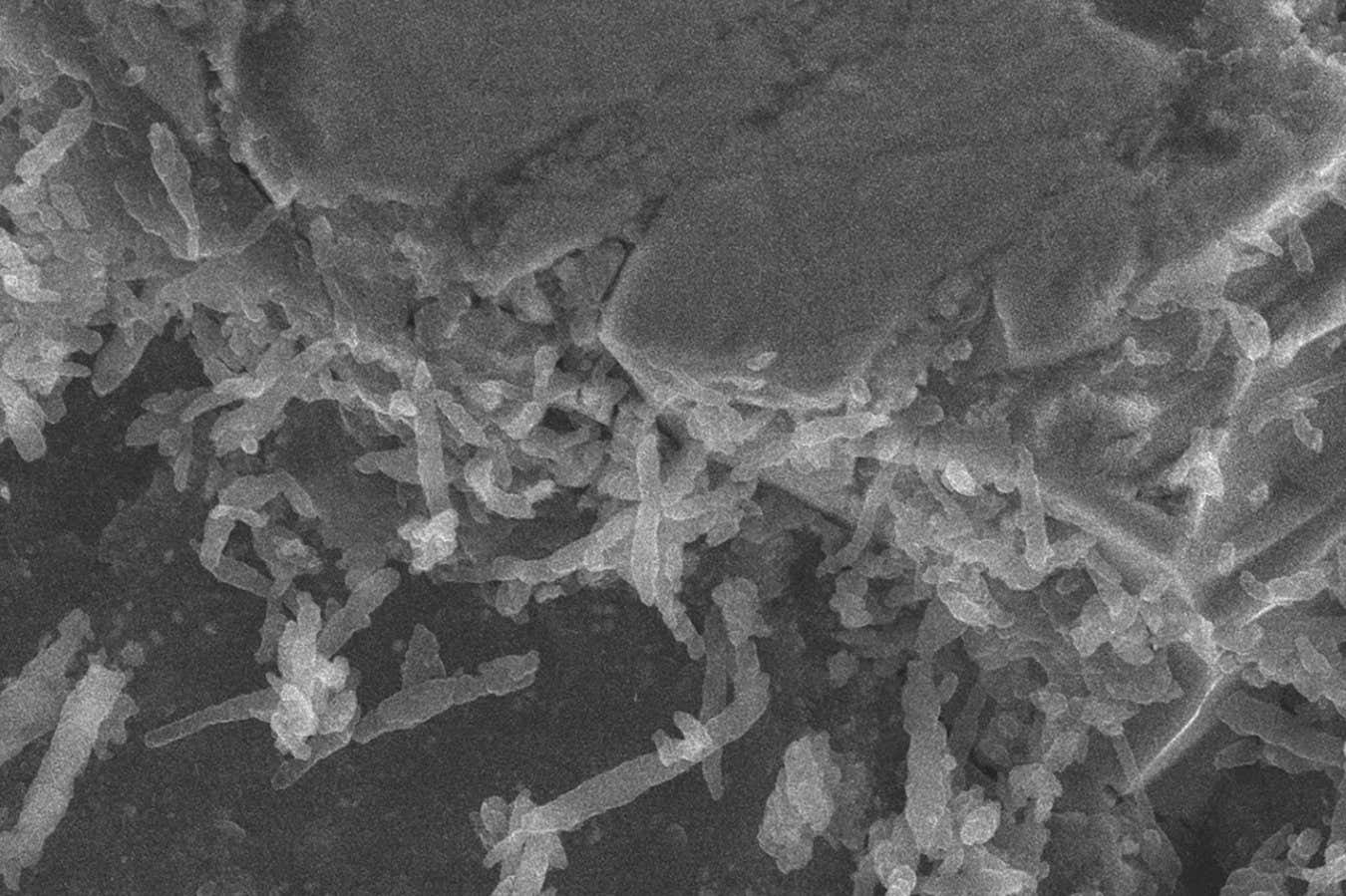The unexpected discovery of microbial life in a piece of rock from an asteroid shows how hard it is to avoid contaminating samples brought back to Earth
By Alex Wilkins
22 November 2024
Bacteria on a sample from the Ryugu asteroid, viewed with an electron microscope
Matthew J. Genge et al. 2024
A rock from the asteroid Ryugu that was brought back to Earth appears to be festooned with microbial life. But these microbes almost certainly came from Earth rather than outer space, say researchers. This contamination serves as a cautionary tale in the search for extraterrestrial life in future sample return missions, such as from NASA’s Perseverance rover on Mars.
In 2020, Japan’s Hayabusa 2 spacecraft returned to Earth with 5.4 grams of rock from the 4.5-billion-year-old asteroid Ryugu. After the sample capsule landed in Australia, it was transported to a custom-built facility in Sagamihara, Japan. There, the capsule was first opened inside a vacuum room, itself located within a clean room, before moving to a pressurised nitrogen-filled room for longer-term storage. From there, parts of the sample could be put inside nitrogen-filled containers and sent out for researchers to study.
Read more
How a radical redefinition of life could help us find aliens
Advertisement
One of these samples was sent to the UK to be studied by Matthew Genge at Imperial College London and his colleagues. Genge and his team initially scanned the sample using X-rays, which showed no evidence of bacteria.
The Ryugu asteroid sample collected by Hayabusa 2 JAXA
Three weeks later, they transferred the sample to a resin, and a week after that they looked at it more closely using a scanning electron microscope (SEM). When Genge and his colleagues first looked at the sample and saw what looked like filament-shaped bacteria, his students were almost “falling off their chairs” at the prospect they had discovered extraterrestrial life. “It was an exciting moment, but also in the back of my mind I knew from previous studies how easy it is for bacteria to colonise rocks,” says Genge.
